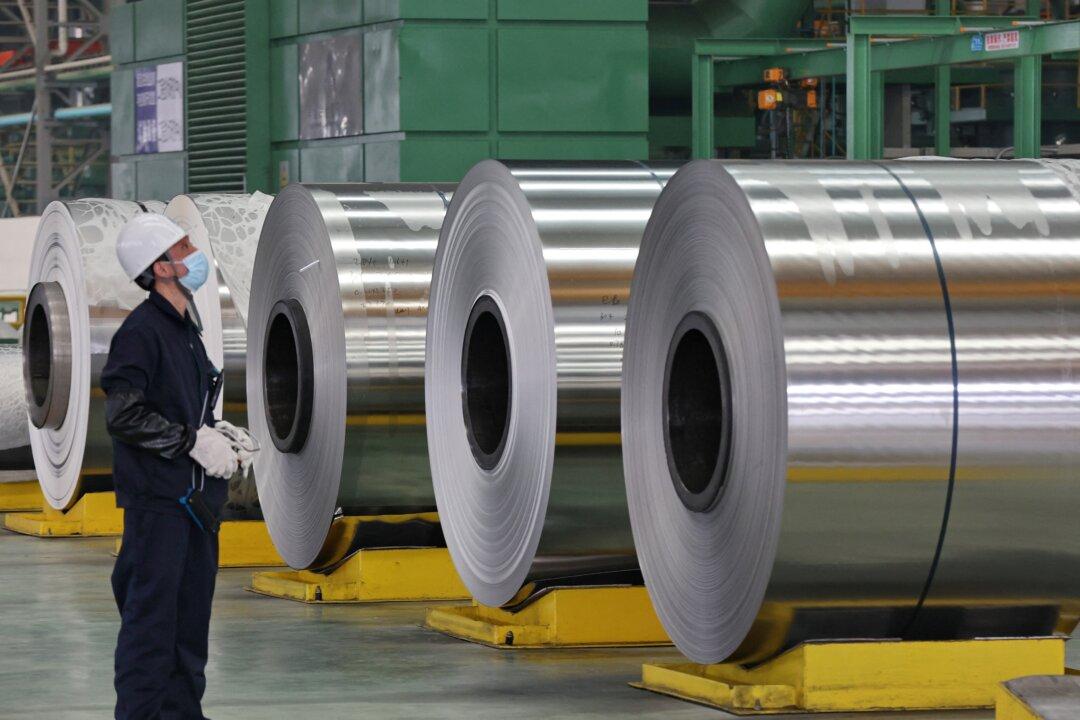China’s steel production oversupply has been a problem for a long time. Instead of reducing production, the Chinese Communist Party (CCP) has only increased it. However, domestic demand continues to decrease, and the surge in China’s cheap steel exports has sparked a global backlash.
Last year, China’s net crude steel exports reached 856.81 million metric tons, a year-on-year increase of 64.2 percent, and steel exports reached 902.64 million tons, up 36.2 percent year-on-year, reaching the highest level since 2016.






